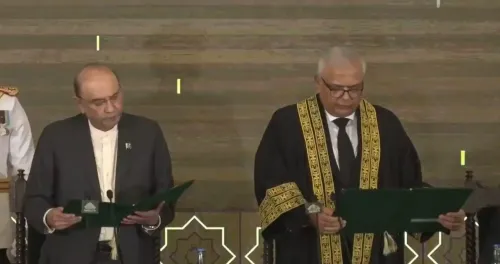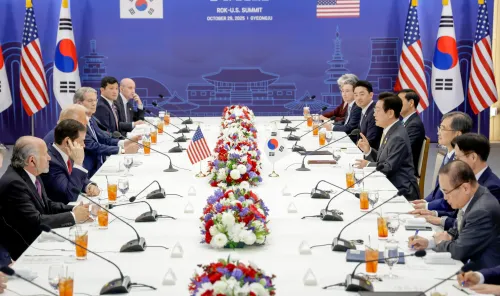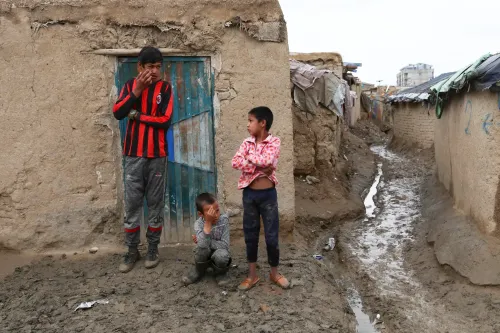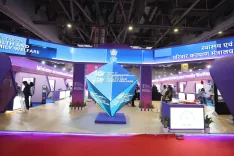Did Former Bangladesh PM Hasina Call the ICT Trial a Politically Driven 'Hatchet Job'?
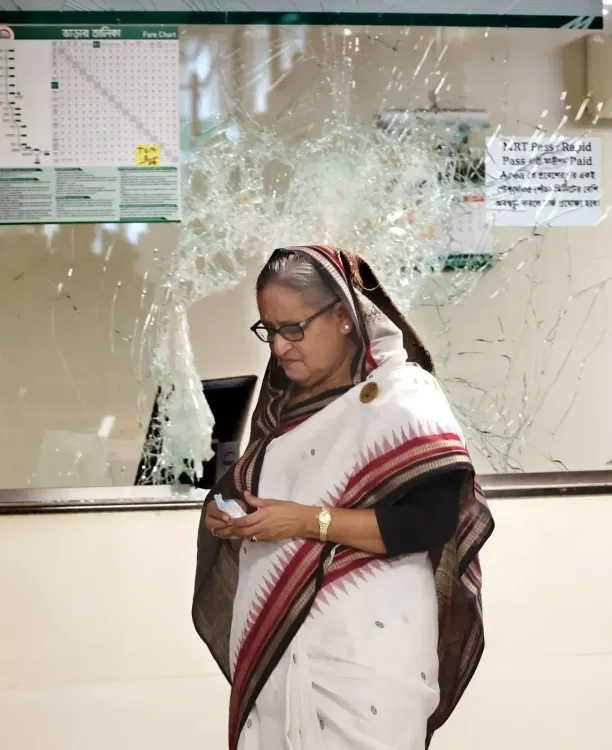
Synopsis
Key Takeaways
- Sheikh Hasina rejects the ICT trial as a political maneuver.
- She has been sentenced to six months' imprisonment for contempt of court.
- The ICT is criticized for lacking legitimacy.
- Protests and unrest are escalating in Bangladesh.
- Upcoming elections face scrutiny over fairness and inclusivity.
Dhaka, Nov 14 (NationPress) The former Prime Minister of Bangladesh, Sheikh Hasina, has publicly rejected the legitimacy of the country's International Court Tribunal (ICT), which is scheduled to announce its ruling on her case on November 17. She labeled the proceedings as a politically motivated “hatchet job” orchestrated by her political opponents, according to reports released on Friday.
Additionally, it was reported that Hasina has been sentenced to six months' imprisonment for contempt of court and is facing separate allegations of corruption.
Numerous officials from Hasina's previous Awami League government are also under scrutiny, including the former interior minister and the ex-police chief, who is currently in custody and has already admitted guilt.
In a recent interview with the South China Morning Post’s ‘This Week in Asia,’ just days ahead of the much-anticipated verdict on charges claiming her actions during student protests last year constituted crimes against humanity, Hasina stated that the initially peaceful protests had “degenerated into mob violence,” which prompted state intervention.
Criticizing the ICT regarding her charges, Hasina asserted, “Bangladesh’s so-called International Criminal Tribunal is neither international nor a true tribunal; it is a judicial farce.”
She continued, “The ICT is manipulated by my political adversaries to ensure a predetermined guilty verdict, aiming to undermine the Awami League as a political entity.”
During this protracted trial, conducted in her absence, prosecutors in Bangladesh have accused Hasina of instructing security forces to employ lethal force against demonstrators, an accusation she vehemently denies.
“At no time did I command security forces to open fire on crowds. My political opponents have made this claim, but they have not provided any credible evidence to support it, because none exists,” she asserted.
Bangladesh is on edge as the Awami League announced a nationwide “lockdown” in opposition to the former PM’s trial.
On Thursday, during the lockdown, schools in Dhaka and major cities across Bangladesh transitioned to online classes and exams, while public transportation faced significant disruptions as the government heightened security measures nationwide.
Hasina, who was re-elected for a fourth consecutive term in 2024, criticized the interim government for undermining its democratic legitimacy by prohibiting all activities of the Awami League under the Anti-Terrorism Act in the lead-up to the upcoming elections.
“An election that bans the Awami League, backed by millions, cannot be considered free, fair, or inclusive. Bangladesh desperately needs a government that rules with the people's consent. Disenfranchising millions will not achieve that. Regardless of whether in government or opposition, the Awami League must be part of the political dialogue in Bangladesh,” the former PM emphasized.

